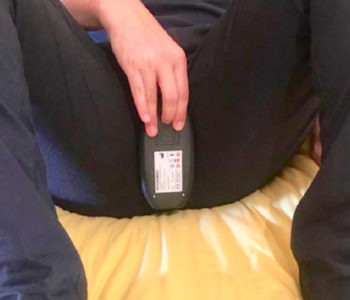An inexpensive electromagnetic therapy quickly improved outcomes for men with enlarged prostates, according to a new study by researchers at Sapienza University of Rome with funding from the Parsemus Foundation. The results were published recently in Andrology, the highest ranked journal in andrological research.
Benign prostatic hyperplasia (BPH), enlargement of the prostate, is a common age-related pathology that often causes lower urinary tract symptoms in men due to compression of the urethra by the enlarged prostate. A common complaint is having to get up at night to urinate. Approximately 60% of men over the age of 60, and 80% of men over the age of 80, will experience the symptoms of BPH.
Traditional BPH treatment includes expensive medical and surgical therapy, which can have side effects including erectile dysfunction and inability to ejaculate. These factors have led to a growing interest in alternative, non-invasive BPH treatments.
Twenty-seven patients with an average age of 67 years and suffering from BPH self-administered pulsed elecromagnetic field therapy (PEMF) using the Magcell® Microcirc, a handheld device made by the German company Physiomed Elektromedizin AG. They used the therapy for 5 minutes twice daily for 28 consecutive days. Questionnaires and extensive health evaluations conducted at baseline, one month and four months after treatment indicated significant reductions in prostate volume and symptoms with no side effects. The PEMF therapy was effective after just one month of treatment, and the effect lasted several more months.
Pending confirmation of these results, the researchers conclude that PEMF could represent an effective, short-term, non-pharmacological add-on therapy for BPH in order to improve therapeutic outcomes.



